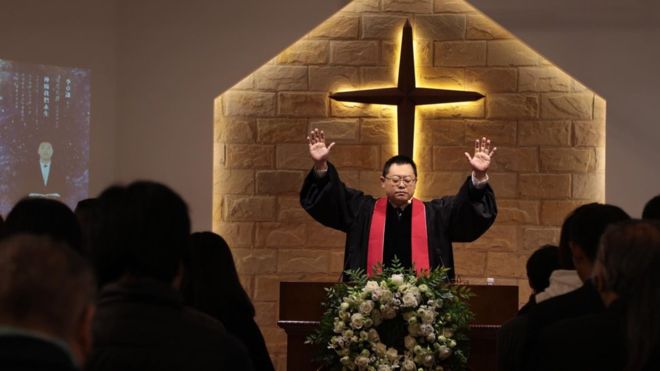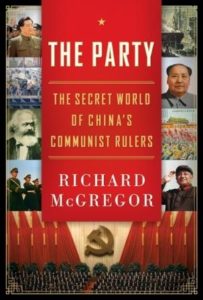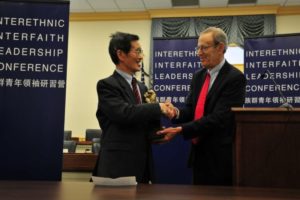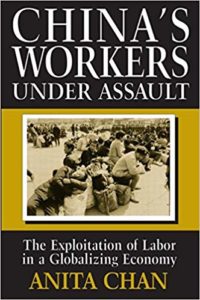
Credit: Facebook/Early Rain
A recent surge of police action against churches in China has raised concerns the government is getting even tougher on unsanctioned Christian activity, the BBC reports:
Among those arrested are a prominent pastor and his wife, of the Early Rain Covenant Church in Sichuan. Both have been charged with state subversion. And on Saturday morning, dozens of police raided a children’s Bible class at Rongguili Church in Guangzhou…..Forty-eight hours after he was arrested, Early Rain Covenant Church released a letter from Pastor Wang, which he had pre-written for release in case something like this ever happened to him. In it, he said he respected the Chinese authorities and was “not interested in changing any political or legal institutions in China”. But he said he was “filled with anger and disgust at the persecution of the church by this Communist regime”.
 China faces “unimaginable” perils and dangers ahead and must rely on Communist Party rule and economic reform to sail through them, Chinese President Xi Jinping said in one of the most watched speeches of his leadership in Beijing on Tuesday, South China Morning Post reports:.
China faces “unimaginable” perils and dangers ahead and must rely on Communist Party rule and economic reform to sail through them, Chinese President Xi Jinping said in one of the most watched speeches of his leadership in Beijing on Tuesday, South China Morning Post reports:.
Speaking at the Great Hall of the People to mark the 40th anniversary of the country’s reform and opening up…. Xi said China would stick to its official ideology, namely Marxism, Leninism, Mao Thought, Deng Xiaoping Theory, Three Represents theory, scientific development concept and his own “Theory of Socialism with Chinese Characteristics in the New Era”.
The defense of religious liberty is one reason why a bipartisan policy on China is possible, said Carl Gershman, President of the National Endowment for Democracy. It is feasible “because prominent people in both parties are strong defenders of human rights in China, including the defense of political rights and religious freedom for Han Chinese, and also the defense of the rights of the Tibetan and Uyghur minorities,” he told the 13th Interfaith Leadership Conference.

Credit: Initiatives for China
To defend human rights in China, and to pursue democracy and the rule of law is our obligation, said the NED’s Gershman added, presenting the Citizen Power Award (left) to eminent reformer and dissident Bao Tong.
The ruling Communist Party’s hostility to religion is integral to its determination to maintain ideological hegemony, analysts suggest.
“Every step of reform and opening up is not easy. In future, we will be inevitably faced with all sorts of risks and challenges, and even unimaginable tempestuous storms,” said Xi, stressing the role of the Communist Party, Reuters adds.
But experimentation, not ideology, has fueled China’s four decades of growth, The Economist notes:
The main lesson from China’s development is how hard it is to draw ideological lessons from it. Dani Rodrik of Harvard University emphasised China’s constant experimentation, whether in its first export zones or its introduction of market pricing. When policies worked well in one place, they were copied. When they did not, they were discarded. That does not make for a grand new economic theory. But it has made for good economics in practice.
 Chinese men and women locked in a mass detention camp where authorities are “re-educating” ethnic minorities are sewing clothes that have been imported all year by a U.S. sportswear company, AP reports:
Chinese men and women locked in a mass detention camp where authorities are “re-educating” ethnic minorities are sewing clothes that have been imported all year by a U.S. sportswear company, AP reports:
The camp, in Hotan, China, is one of a growing number of internment camps in the Xinjiang region, where by some estimates 1 million Muslims are detained, forced to give up their language and their religion and subject to political indoctrination. Now, the Chinese government is also forcing some detainees to work in manufacturing and food industries. ….The Associated Press has tracked recent, ongoing shipments from one such factory — Hetian Taida Apparel — inside an internment camp to Badger Sportswear, a leading supplier in Statesville, North Carolina.
 McKinsey & Company held a lavish corporate retreat in Kashgar, as consultants enjoyed bonfires, camel rides, and red carpets about four miles from where thousands of Muslim Chinese are locked up in an internment camp, the New York Times reports.
McKinsey & Company held a lavish corporate retreat in Kashgar, as consultants enjoyed bonfires, camel rides, and red carpets about four miles from where thousands of Muslim Chinese are locked up in an internment camp, the New York Times reports.
At a time when democracies and their basic values are increasingly under attack, the iconic American company has helped raise the stature of authoritarian and corrupt governments across the globe, sometimes in ways that counter American interests, the articles states. The Kashgar anecdote speaks to a troubling trend at McKinsey — engaging in work with authoritarian leaders around the globe, even as the consulting firm professes to “make a positive difference.”







